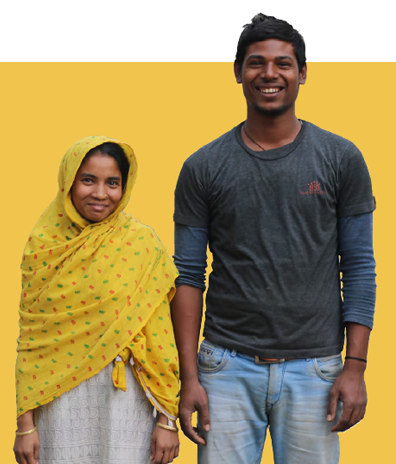Non communicable Disease
Saving Lives and Improving Health
PSI India has made efforts to address NCDs via projects such as 'Quit Line’, 'Tobacco control advocacy’ and Project 'Uday'. Project Uday was an operational research program in two geographically and culturally different districts, Sonipat (Haryana) and Vishakhapatnam (Andhra Pradesh). PSI India conducted a qualitative research study to understand the perceived risk and susceptibility about diabetes, high blood pressure and related symptoms among the general population and also to understand the opportunities and barriers to utilizing health care services, especially among those who already have diabetes mellitus and blood pressure. Based on the findings and in consultation with government officials and project partners, a mass media campaign was developed, which was later adopted by the government.
Similarly, PSI India implemented a project titled Sankalp, on cervical cancer prevention in the state of Uttar Pradesh (U.P.). Under the Sankalp project, PSI India worked with private obstetricians and gynecologists from 10 districts of UP who provided screening and treatment services to low-income group women at subsidized costs. To cater more urban poor women, the program was scaled up in the public sector through a public-private-partnership. PSI India technically assisted the National Health Mission (NHM), UP, and State Innovations in Family Planning Services (SIFPSA) in launching a NCD program exclusively for women, named ‘’Sampoorna". Under the Sampoorna project, early detection and management services for cervical cancer as well as for five more non-communicable diseases—anemia, hypertension, obesity, diabetes, and cardiovascular diseases were added for screen and treat services. "Sampoorna Clinics" were established across 28 districts of UP in district women's hospitals and community health centers. PSI India developed a mass media campaign on cervical cancer screening that was adopted by the government of UP.
Heart disease, cancer, diabetes and chronic
respiratory conditions are just a few of the many
illnesses that fall under the umbrella of
non-communicable diseases (NCDs).
Affordable and Accessible Early Detection and Treatment Services
PSI India collaborated with the government and other stakeholders to implement screen-and-treat programs for NCDs. Under the Uday and Sankalp projects, low cost screening and treatment services were provided to poor communities. Under cervical cancer prevention projects, screening was done through visual inspection using vinegar or dilute acetic acid (VIA) and treatment was provided using cryotherapy (a freezing technique). Through community health workers, PSI India created awareness about early diagnosis and linkages between the community and health facilities for treatment services and follow-up.
Capacity Building
Aligned with WHO Guideline, PSI India developed technical manuals and training materials for service providers on cervical cancer screening and treatment. Under the Uday project, an integrated m-Health initiative was implemented through the use of a Decision Support System, which provides management algorithms, to assist qualified health care providers and community health workers.
Integration of Multiple NCD Services
PSI India technically supported NHM and SIFPSA in initiating a screen and treat program in public health facilities launched under the umbrella of the National Programme for Prevention and Control of Cancer, Diabetes, Cardiovascular Disease and Stroke (NPCDCS) to bring forth a preventive approach towards non-communicable diseases in women. The project objective was not only to provide Cervical and Breast cancer, Diabetes, Hypertension Anemia and Body Mass Index services but also to make women aware of lifestyle modifications and screening approaches that are important for the prevention of NCDs.



